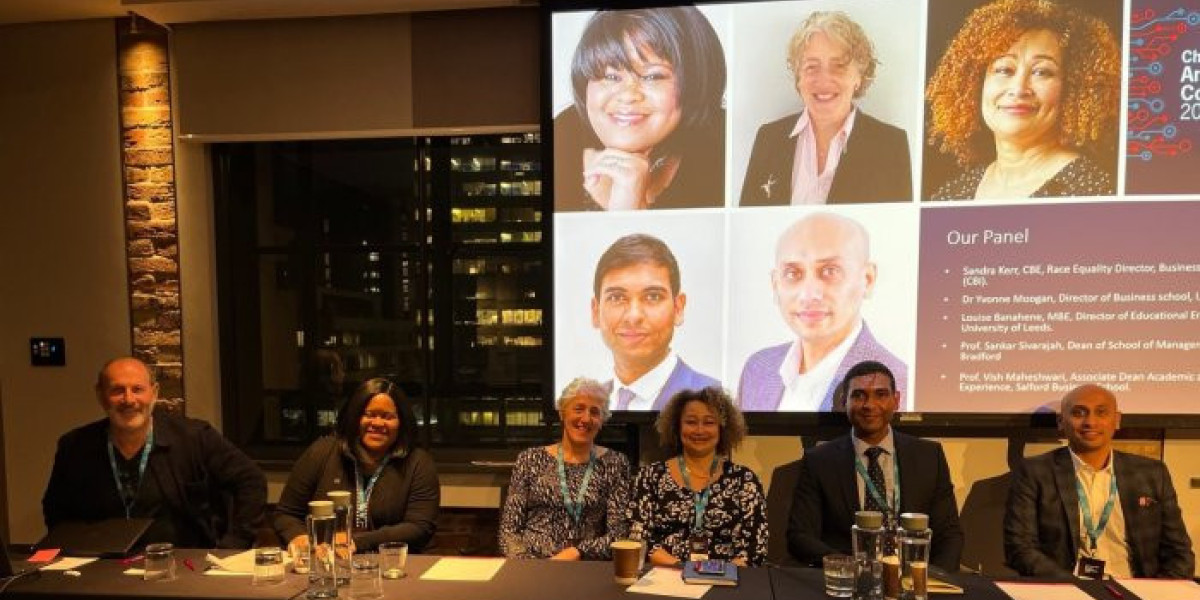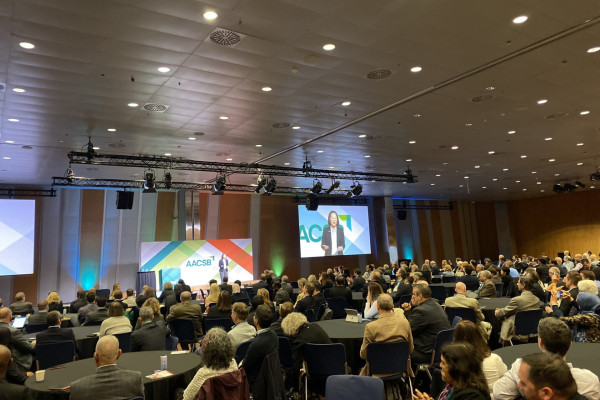Can UK business schools justifiably claim to be engines of social mobility?

Authors

Mark Clark CMBE
Senior Lecturer in Management & Course Director for BSc Business and Management, University of Sussex Business School
At a time when the most disadvantaged are disproportionately affected by the cost-of-living crisis, the continued fall out from Covid-19 and deepening inequalities across multiple sectors, it’s a critical time to ask whether UK business schools are doing enough for students from disadvantaged and underrepresented backgrounds.
At the 2023 Charted ABS Annual Conference in London, a group of leading practitioners discussed this very question in a session titled, ‘Business schools as engines of social mobility’. The session focused on examples of strategies, initiatives and actions that business schools currently employ to include students from disadvantaged backgrounds, encompassing three themes:
Theme 1: support through developing new entry points to HE.
Theme 2: utilising new modes of inclusive learning.
Theme 3: creating new routes into employment.
It is well established that students from neighbourhoods with lower rates of participation in HE, known as POLAR 4 quintiles 1&2, are proportionally less likely to go to university and more likely to struggle to survive than their better off counterparts (GOV.UK, WP in HE Report 2023). Socio-economic disadvantage intersects with other factors such as first in family to go to university, gender, ethnicity, disability and looked after status, creating multiple complex identities and needs.
In theme one, Dr. Yvonne Moogan and Louise Banahene MBE stressed the importance of interventions at all stages of the pipeline. The University of Hull, for example, has developed links with Hull’s Children’s University to raise awareness and develop the skills of young disadvantaged pupils. Similarly, regular visits to inner city schools raise awareness of university life, and summer schools for Year 11s involve living on campus in halls of residence to break down barriers.
Louise advocates for contextual admissions which value academic potential beyond pre-entry grades alone, in recognition of the impact of disadvantage on prior attainment. She cautions not to forget about supporting access to postgraduate study/research, which is often crucial for career development. In theme two, Professor Sankar Sivarajah and Louise spoke of the importance of programmes that place disadvantaged students at the heart of learning by design. Sankar cites the University of Bradford’s MSc Applied in AI and Data Analytics programme with dedicated scholarships targeting underrepresented communities in the AI field, and Louise advocates for flexible programmes of study to widen access (e.g. foundation years, apprenticeships). Sankar highlights the role of technology for inclusive engagement, for instance, the integration of chatbots into virtual learning environments to enhance student engagement.
Sandra Kerr CBE, says universities should provide inclusive ‘orientation’ spaces beyond formal induction processes for new entrants to ask questions, which is especially important for first in family students from disadvantaged backgrounds. One-to-one mentoring such as ASPIRE programmes or mentoring circles, where students learn from a mentor and provide peer support, serve to break down feelings of isolation and enhance understanding of key processes. Similarly, coaching support can assist students who feel stuck at any stage of their studies. This lowers anxiety levels and improves retention.
In theme three, Sandra and Professor Vish Maheshwari further identified how to better prepare students for careers. Vish explained how Salford Business School uses bodyswaps to develop soft skills required by recruiters in a safe virtual classroom, skills which disadvantaged students are often unaware of. Sandra advises not to be overly concerned about being patronising or assume everyone already knows essential information because it’s likely needed. Data shows disadvantaged students experience worse employment outcomes and pay compared to their peers, even with higher degree classifications. Sandra is the Race Director for Business in the Community, a leading race equity policy adviser nationally, and author of the Business in the Community Race at Work Charter. It has over 500 signatories demonstrating public commitment to improving the experience of black and minority ethnic employees at work (https://www.bitc.org.uk/race-at-work-charter-signatories/). Business schools must actively seek to build relationships with leading socially invested businesses that offer mentoring, paid internships, and skills masterclasses, to give disadvantaged students the opportunity to gain work experience and develop networks.
Our session demonstrates that UK business schools are genuinely committed to social mobility and that achieving equity for all students requires continued effort and investment. UK business schools are working to improve the representation and experiences of disadvantaged students at all stages of their HE journey. For example, in response to the current cost of living crisis the University of Sussex Business School provides free regular breakfasts and meal kits for those with limited resources. However, it was recognised that new challenges requiring innovative solutions, constantly emerge. When it comes to social justice this race is a marathon not a sprint.
Panel Members - Charted ABS Annual Conference 2023, Monday 13 November:
Sandra Kerr, CBE, Race Equality Director, Business in the Community.
Dr Yvonne Moogan, Director of Business school, University of Hull.
Louise Banahene, MBE, Director of Educational Engagement, University of Leeds.
Sankar Sivarajah, Dean of School of Management, University of Bradford
Vish Associate Dean Academic and Student Experience, Salford Business School.
Chair, Mark Clark, Senior Lecturer, University of Sussex Business School.
